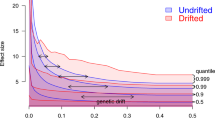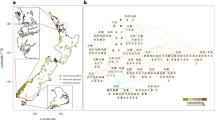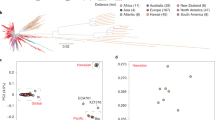Abstract
In reply to Prof. Graham Cannon, I neither stated at the British Association, nor have I ever held, that all characters must possess 'selection value' : precisely the contrary, since I took some care to explain that the spread of non-adaptive characters, which certainly exist, cannot be responsible for evolution in wild populations. At the same time I pointed out the danger of stating that any particular character is non-adaptive, since even a 1 per cent advantage can rarely be detectable by the most accurate experiments, though it is considerable from an evolutionary point of view. It is genes, not characters, that must very seldom be of neutral survival value. That is by no means to say that they are never so, but, as stressed at the meeting, such genes cannot spread in a semi-isolated population so as to produce the 'Sewall Wright effect' unless it be numerically very small, of well under a thousand individuals, and such populations are unlikely to be sufficiently permanent units.
This is a preview of subscription content, access via your institution
Access options
Subscribe to this journal
Receive 51 print issues and online access
$199.00 per year
only $3.90 per issue
Buy this article
- Purchase on SpringerLink
- Instant access to the full article PDF.
USD 39.95
Prices may be subject to local taxes which are calculated during checkout
Similar content being viewed by others
Author information
Authors and Affiliations
Rights and permissions
About this article
Cite this article
FORD, E. Non-Adaptive Characters. Nature 164, 882 (1949). https://doi.org/10.1038/164882b0
Issue date:
DOI: https://doi.org/10.1038/164882b0



